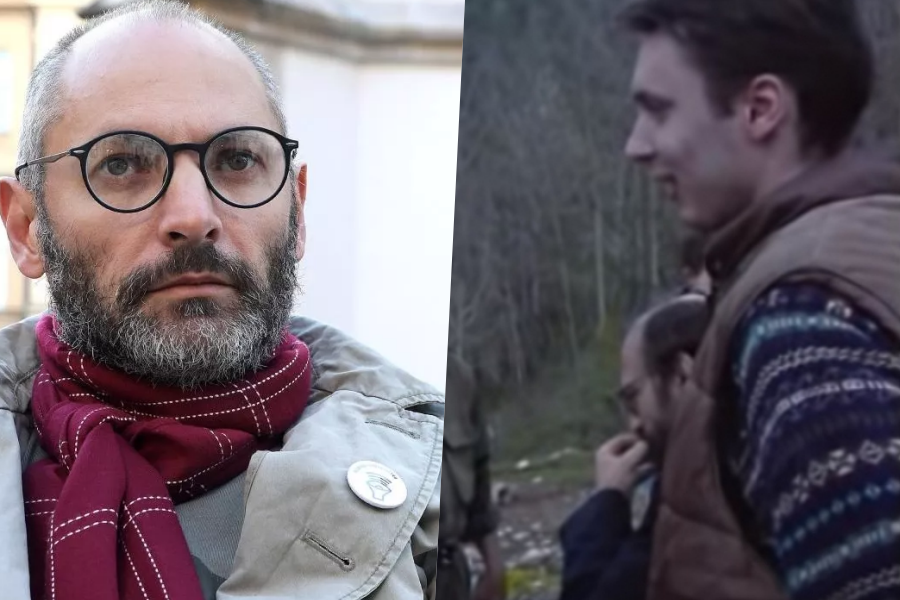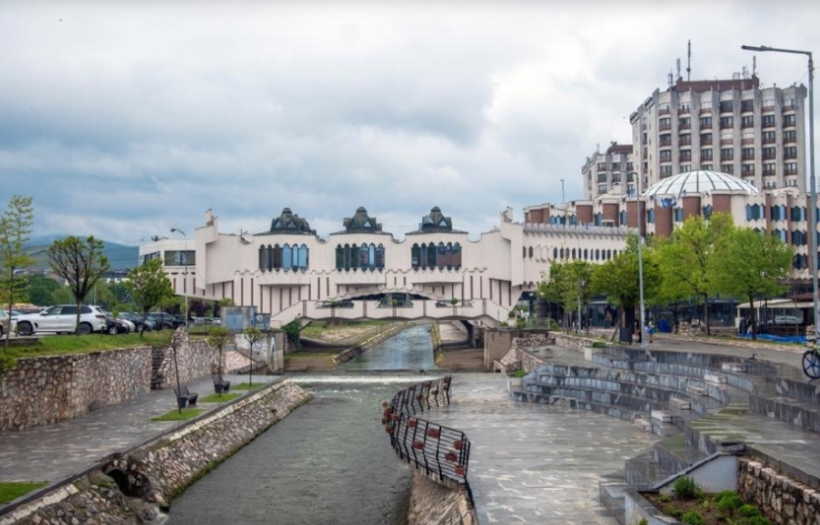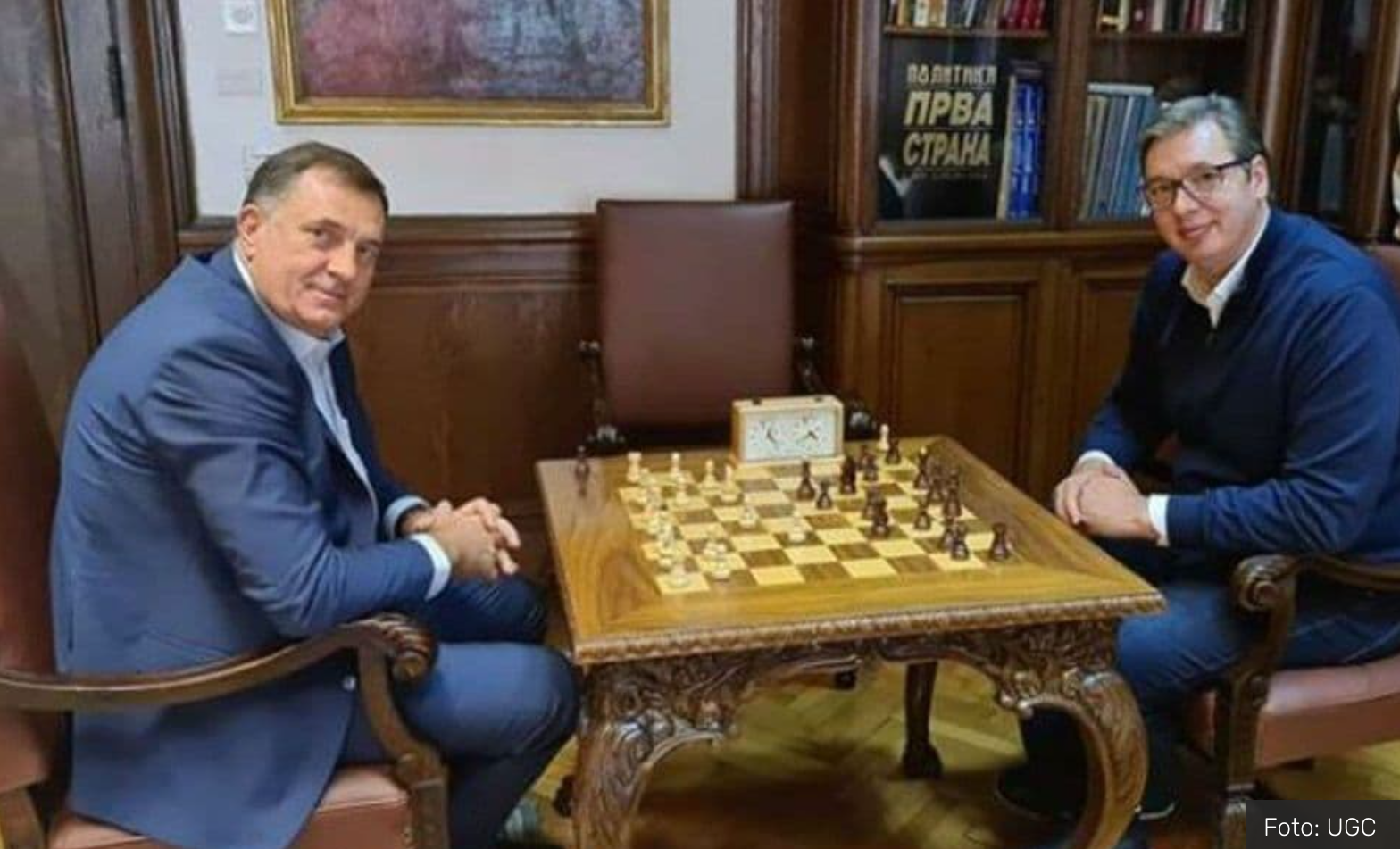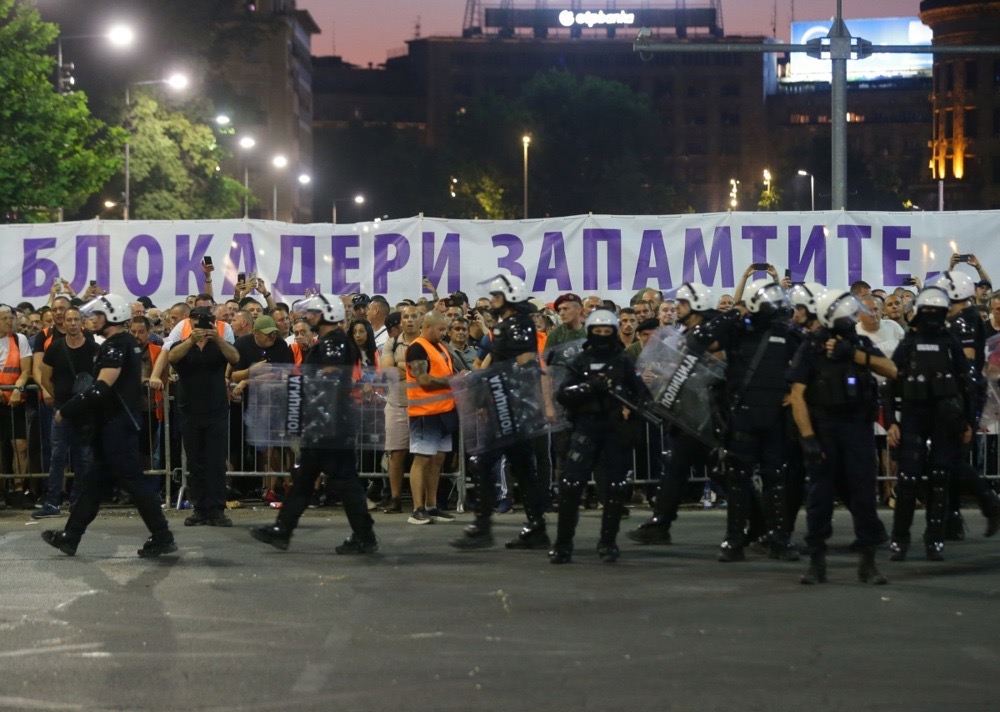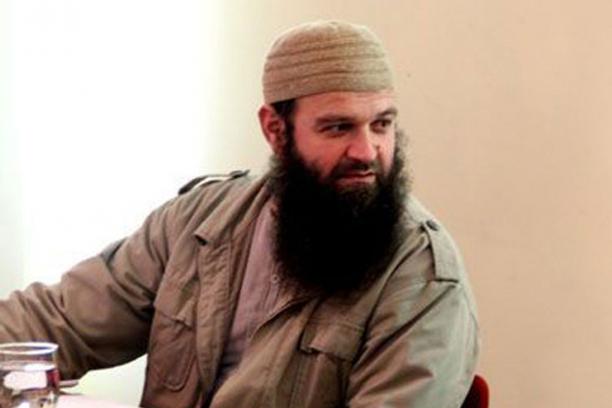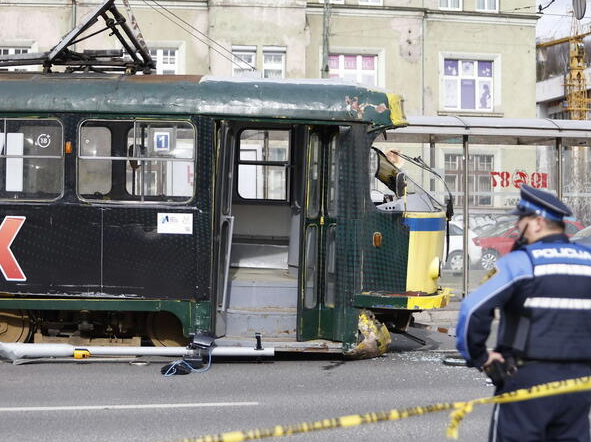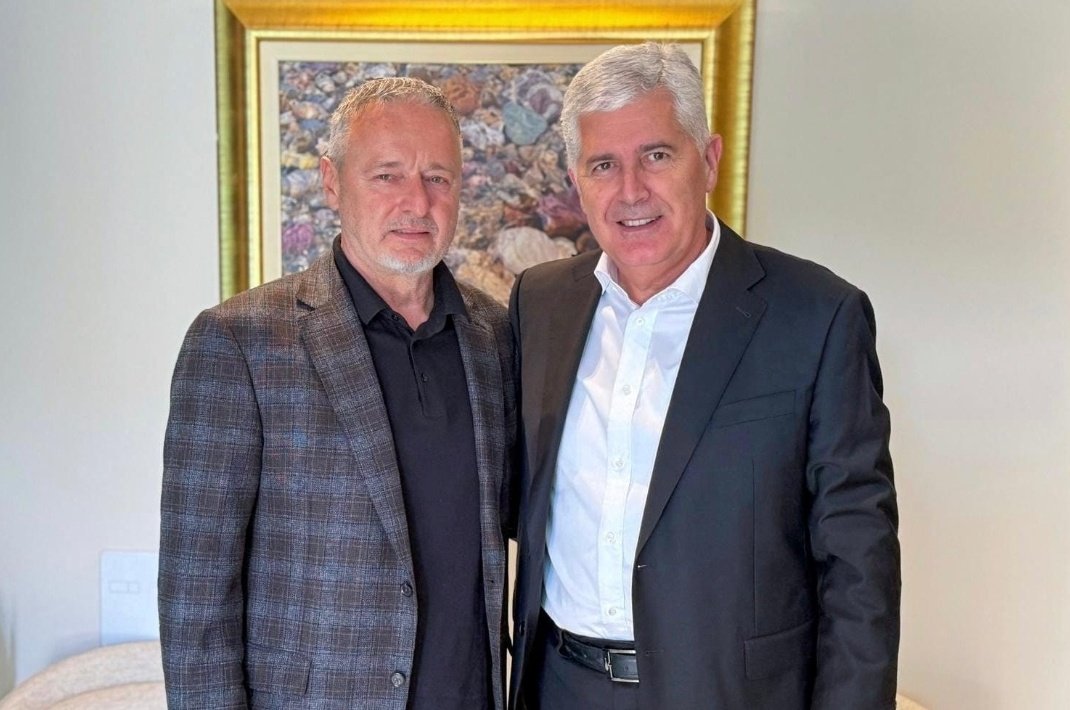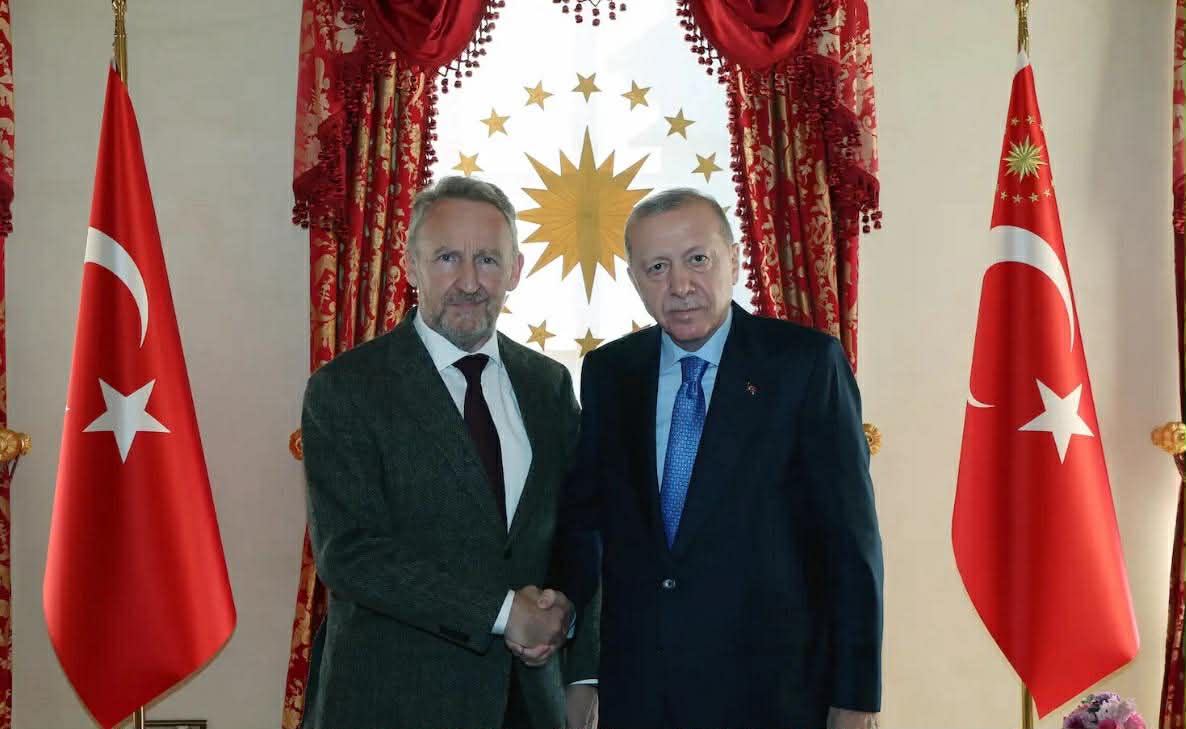There are widespread perceptions in the Balkans that by appeasing Serbia, Western governments actually contribute to destabilizing the region. Even while President Aleksandar Vučić pursues the “Serbian World” agenda and raises inter-ethnic animosities, he is treated like a constructive statesman who can help ensure regional security. There are two main reasons for this self-damaging Western policy: conversion delusion and risk aversion.
American and EU leaders seem to genuinely believe that political leaders such as Vučić can be converted into cooperative democrats. This will evidently happen through inclusion in high-level meetings and negotiations that will generate mutual confidence and trust. According to this script, even a “former” nationalist and propagandist will understand that he needs to make compromises if Serbia is to join the European Union and be afforded significant accession funds.
Unfortunately, such a policy of inclusion abjectly failed in the case of Russian President Vladimir Putin. For years, Western governments engaged in endless discussion, signed agreements, and enabled Russian state energy and money to penetrate Europe in the forlorn hope that this would convert Russia into a normal partner. Instead, Moscow’s penetration of Western institutions had the exact opposite effect, by enabling Russia’s blackmail and extortion, most visible after its full-scale invasion of Ukraine in February.
Belgrade has exploited the West’s naïve hopes to prevent any strong repercussions for its refusal to recognize Kosova as an independent state. While engaging in inconclusive EU-mediated talks, Vučić regularly threatens Kosova and adamantly opposes its independence, As witnessed in recent disputes over car license plates and passports, Vučić frequently provokes conflicts to try and discredit the government in Prishtina so he can indefinitely delay any agreements leading to mutual inter-state recognition.
Belgrade is also allowed to contribute to the destabilization of Bosnia-Herzegovina and Montenegro without any consequences. Although Vučić and Republika Srpska leader Milorad Dodik may not like each other their policies are mutually reinforcing. Dodik keeps Bosnia unstable, helps revive Croatian nationalist claims to western Herzegovina, and maintains close relations with Moscow. This helps Vučić pursue his Serbian World program by keeping Sarajevo off balance and deflecting blame from Belgrade toward Banja Luka.
Belgrade has become brazen that its actions will not have any serious repercussions from Western capitals. In a recent example, Serbia’s Foreign Minister Nikola Selaković and his Russian counterpart Sergei Lavrov signed a document on bilateral consultations in coordinating their foreign policies. Although Brussels and Washington formally denounced the move, which blatantly disregards EU insistence that candidates curtail their dealings with Moscow, Vučić has calculated that EU words will not be followed by meaningful deeds.
A second reason for the soft approach toward Serbia’s regime is risk aversion. Western governments prefer to maintain the status quo as long as it does not slide into violence, rather than pursuing a more rigorous policy to achieve specific objectives. Vučićplays on these fears and asserts that without him more radical elements could spark a full-fledged war across the region. He calculates that the West will prefer to play it safe rather than challenge his assumptions. Paradoxically, a weak Western approach that placates expansionist nationalism is more likely to result in miscalculations and violence than a firm policy for state consolidation in Bosnia, Montenegro, and Kosova and the neutralization of all pan-national projects.
Unless Brussels and Washington issue a firm timetable for mutual recognition between Serbia and Kosova and specify the economic and diplomatic consequences of non-recognition, Vučić will continue to play the Kosova card to rally nationalists and generate uncertainty. Similarly in Bosnia, unless there is full-blown pushback against Serbian and Croatian separatists and a determination to reform the state structure, the country will continue to be prone to both internal and external destabilization.
If pan-Serbianism is seen to be condoned in the major EU capitals, then this will fuel other irredentist projects, including pan-Croatianism and pan-Albanianism. Zagreb watches carefully how Belgrade exploits US and EU weaknesses and seeks to imitate its successes. This is reminiscent of the early days of the 1992-1995 war when Croatian nationalists decided to carve out their own Herzeg-Bosnia state when they saw that Western governments were tolerating the forcible creation of RS through the mass murder and expulsion of Bosniaks.
Pan-Albanianism and state enlargement can also be revived if local grievances intensify and Serbia is seen to have a freer hand in pursuing its irredentist agenda. There is understandable resentment in Kosova, which unlike Serbia has followed foreign policies congruent with that of Brussels, but is not treated with any preference. Widespread public disappointment with economic conditions and international agencies can be exploited and exacerbated by ambitious politicians to promise national unification as a form of salvation. If popular support for unification mushrooms, then a broad array of politicians will start competing on the pan-national agenda.
The EU is also placating Vučić despite his pro-Kremlin policy. A firm policy would terminate any pre-accession funds and suspend Serbia’s EU accession bid unless the government abides with the European consensus to sanction Moscow for its attack on Ukraine. Although the European parliament has finally taken such an initiative, the results remain uncertain. Serbia is becoming a hub for Russian business and sanctions busting without any repercussions. Western governments seem oblivious to the growing menace and even support initiatives such as “Open Balkans,” trusting that it will foster regional cooperation. In practice, such initiatives are designed to raise Serbia’s regional role and Moscow’s economic penetration without any benefit to ordinary citizens.
Western governments confront a stark choice in dealing with expansionist nationalism in the Balkans. They can continue believing that they will turn radicals into moderates or they can set strict conditions and timetables for executing agreements and withhold any financial and economic benefits if there is no compliance. Ultimately, there is no middle way.
Janusz Bugajski is a Senior Fellow at the Jamestown Foundation in Washington DC. His new book, Failed State: A Guide to Russia’s Rupture, has just been published.



